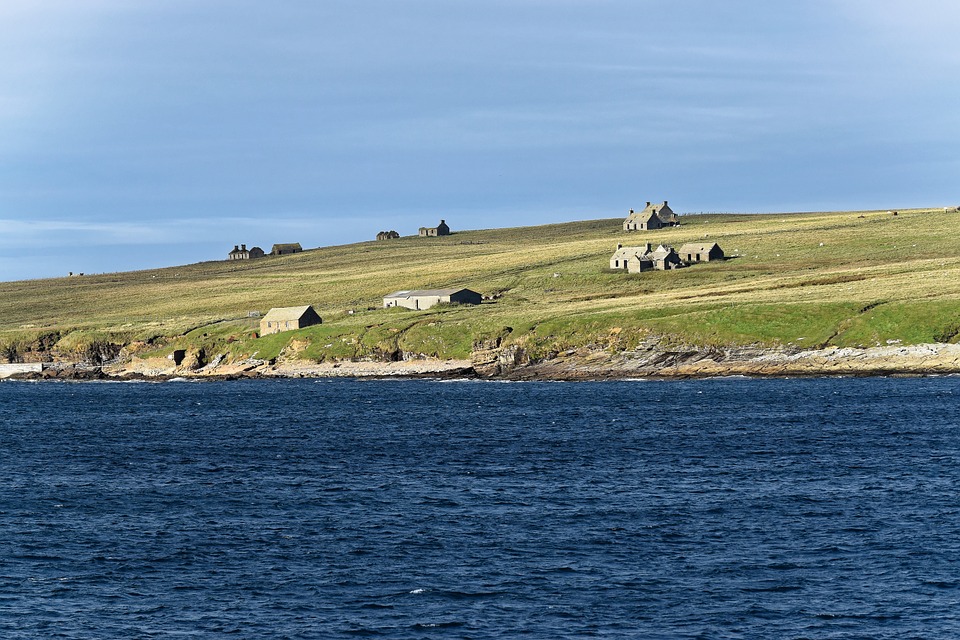Orkney residents fears over fuel poverty and lack of housing
High fuel costs, accessibility and isolation are key concerns for older people in the Scottish Islands, a new survey has found.

An extensive study by Age Scotland, funded by the Scottish Government, has found that older people in the Scottish Islands are worried about fuel poverty and a lack of suitable housing.
The study included a survey which had 978 respondents - an estimated 18% of Orkney’s over 55 population.
Orkney has one of the fastest ageing populations in Scotland, with the number of residents aged 75 and over predicted to rise by 115.8% by 2037, according to National Records of Scotland. The report highlights a need for more action to “future-proof” homes on the island and build more suitable accommodation.
The survey revealed that over half of respondents said they were concerned about rising fuel costs, while almost half (47%) said they turned down their heating to reduce costs. Similarly, one in nine older residents said they struggled to pay their fuel bills some or all of the time. Rising fuel costs were a worry for 56% of respondents, with prices substantially higher than the Scottish average. Respondents reported paying an average of £1080 a year for electricity, compared to £650 across Scotland.
Although most people have tried to save energy through measures such as draught excluders and loft insulation, only around a quarter were aware of Scottish Government energy efficiency programmes, and only 2% had a smart meter installed
Managing director of Age Scotland Orkney, Gillian Skuse, said: “It’s clear that fuel bills are a big concern, with costs significantly higher than other parts of Scotland. It’s worrying that many older people could be putting their health at risk by not heating their homes adequately.
She added: “We’d like to see more people taking advantage of energy efficiency programmes available. We’d also encourage them to check they’re claiming all the benefits they are entitled to, such as Pension Credit and Winter Fuel Payments.”
The report also indicated that concerns over the lack of suitable housing are preventing many Orkney residents from moving as they get older or face health issues. One-third of the people who took the survey reported they had long-standing health problems. However, most respondents (43%) said they would prefer to live in their own homes as they got older, but fewer than a third (32 per cent) had adapted their homes. A further 15% plan to move in the next 10 years, with most wanting to live in a bungalow. More than a quarter of people aged 75 and over plan to move to supported accommodation, raising concerns that there is not enough housing to fit their needs.
The survey has indicated that one in nine respondents felt their current home did not fit their needs, but could not find anywhere suitable close by, or were put off by the cost of moving. Many said they worried about feeling cut off and isolated as they got older, particularly because of a lack of public transport.
Chief executive of Age Scotland, Brian Sloan, said: “With its rapidly ageing population, remote location and climate, Orkney faces particular challenges when it comes to housing. It’s vital that we plan ahead now to meet the needs of its older people, and ensure that they have access to all the help that’s available. While most older Orcadians are happy in their homes, this research highlights a shortage of suitably adapted homes that will enable people to stay in their communities.”
He added: “Respondents shared their worries about steep stairs, inadequate heating and requiring a bedroom and bathroom on the same level. Others spoke about feeling isolated due to a lack of transport, which can have a serious impact on mental health and well-being. While many are thinking ahead to their future needs, others are waiting for their health to deteriorate before they make a decision. We’d like to see more awareness of the choices available and help for residents to adapt their homes.
“We were delighted that so many older people took part in this research, providing an invaluable snapshot of the housing and energy needs of Orkney’s older population. We hope this helps Orkney Islands Council, the Scottish Government, housing associations, and health and care providers work together to prepare for their needs now and in the future.”







